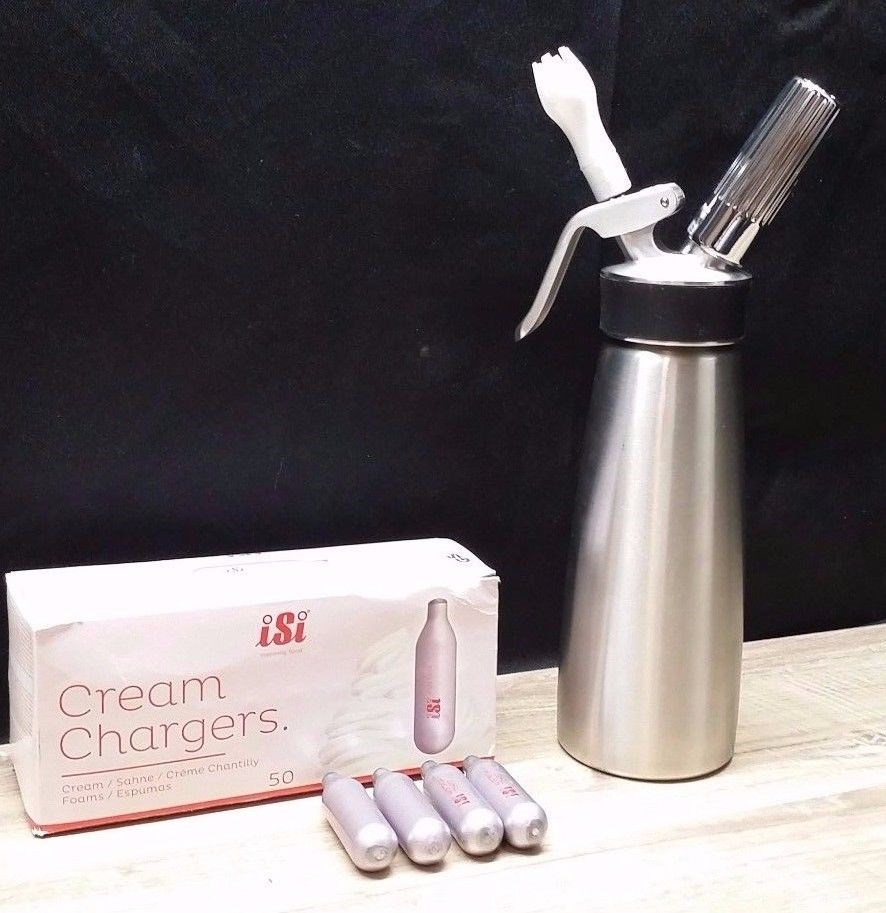A 23-year-old Richmond man is still recovering from severe health effects after overdosing on nitrous oxide (N2O), commonly known as “laughing gas.”
"I was almost paralyzed," said Walliace (the Richmond News agreed to withhold his last name).
The gas is used as a form of anaesthesia in medicine and as a foaming agent for making whipped cream and icing.
Wallace was introduced to “laughing gas” as a recreational drug for the first time at a Christmas party last December.
“We bought it from individuals who sell and deliver it on Wechat, pumped the gas into the empty whip cream bottles and inhaled the gas,” said Wallace.
“At first, I thought it was fun. I felt semi-conscious for a moment, not thinking of the past or the future. Then I started to buy more and more, myself, through Wechat sellers, and became addicted.”
At the height of his addiction, he said he inhaled more than 1,000 eight-gram cartridges of nitrous oxide every day for two months and spent all of his more than $30,000 savings.
“It’s quite expensive. You pay $100 for 100 cartridges to Wechat sellers, or a box of 600 cartridges for $400,” said Wallace.
“After those two months, I found my arms and legs becoming numb and very weak. I fell over all the time. My hands felt like I was wearing gloves when I touched things.
“Then I lost my ability to walk and went in to a wheelchair in the end. I needed others’ assistance even for going to the toilet or to the shower.”
Wallace said he also lost his appetite but, bizarrely, gained 40 kilograms.
“Sometimes I had delusions that someone was going to hurt me, or someone was chasing me while I was driving,” he recalled.
Wallace said he was sent to Richmond Hospital by his family in May and then sent to hospitals in China, before returning to Richmond two weeks ago.
“I was told that the level of Vitamin B12, which affects the nervous system, in me was close to zero. And my hormones were disrupted,” said Wallace.
After quitting the gas completely and receiving treatment and physical therapy, he can now walk “with a limp,” but is still not fully recovered.
He hopes by sharing his experience, more people will learn about the potential risks of “laughing gas,” which he believes are underappreciated. He’d also like to see the government restrict access to it.
“It’s very popular among international students and local teens at parties or clubs. One third of my friends have taken it; they are just not as serious as me,” said Wallace.
“When I first had it, I thought there must be no severe consequences if people can sell it in public and the government has no restrictions.”
Vancouver Coastal Health (VCH) said it cannot verify the case at Richmond Hospital for patient confidentiality reasons.
“I can tell you recreational use of nitrous oxide is uncommon, and hospitalization related to its use is even more uncommon,” said Gavin Wilson, director of VCH public affairs.
Richmond-based addictions psychiatrist Dr. Sree Nagendran said he hasn’t had any patient seeking help for abusing nitrous oxide, but he is aware of its risks.
“(Damages) usually occur after one to six months of heavy use,” said Nagendran.
“Effects can be loss of sensation in the legs or limbs, or difficulty in walking.
“It’s because the gas itself reduces the availability of vitamin B12, and that causes what we call diminution of the nervous system.”
He said patients need to be treated with vitamin B12 injections and counselling therapies to find out the reasons why they took it in the first place.
Catherine Cosgrove, clinic director of the Sobriety Home Foundation, a Quebec-based drug and alcohol treatment centre, published an article recently warning of the serious damage N2O can have on the body. In fact, she called it “the next silent killer.”
She has patients who have suffered symptoms similar to those experienced by Wallace.
“It surprised me when, only last year, we had three who called; two came in to ask for treatment for N2O use,” Cosgrove told the News.
“The problem is that, the high time is very short, only lasting for a few minutes. So you go, ‘oh, I will use more,’ then people become addicted. But every time you use it, it causes brain damage and has neurological consequences.
“Many of the brain damages are permanent — not something that can be repaired.”
She said it’s psychologically addictive, instead of physically addictive, but because there have been relatively few cases, there is not much information available.
“People need to be educated about this alternative to getting high. Just because nitrous is not an illegal street drug, does not make it safe,” said Cosgove.
Richmond RCMP said it is not aware of any cases relating to N2O overdose.



